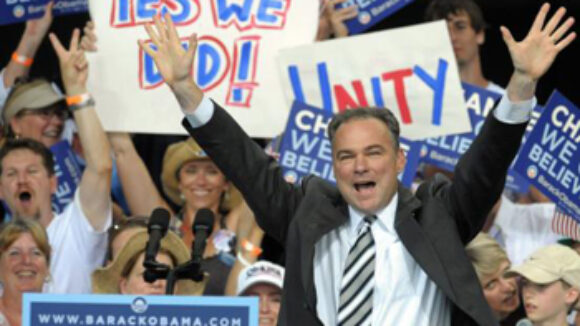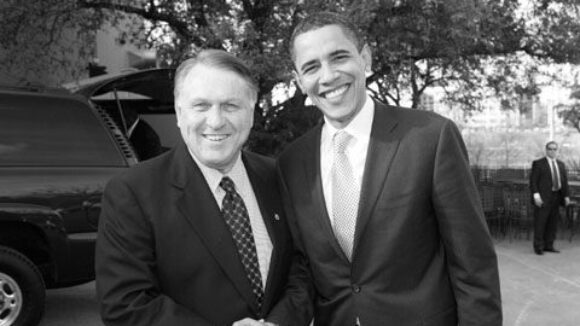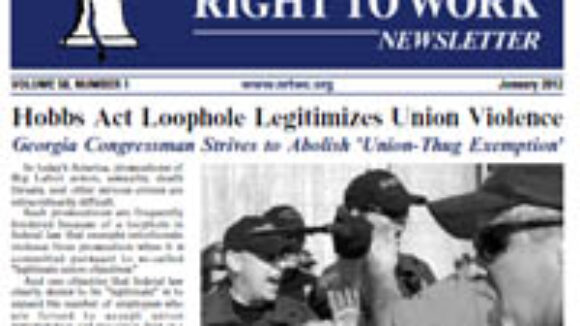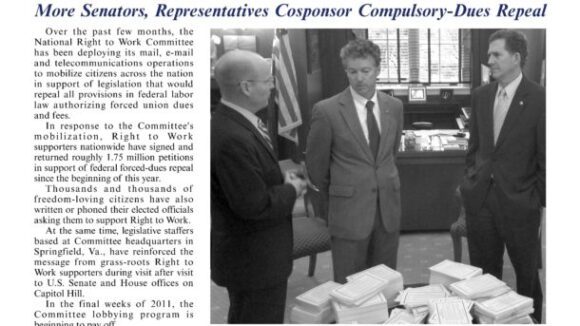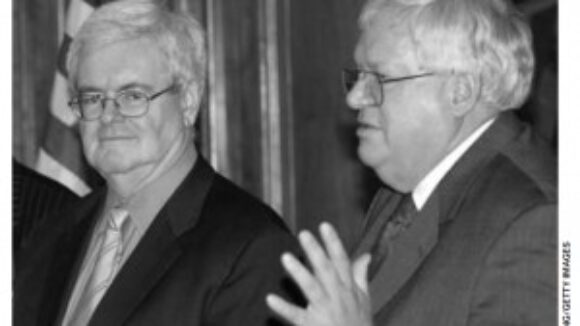Tim Kaine: "Friend of Labor Bosses"
Virginia is a battleground state for the presidency and for control of the US Senate this year. Former GOP Senator and Right to Work champion George Allen is running against former Obama's handpicked Democratic National Committee Chairman and while Virginia governor and Tim Kaine. Kaine claims to support the state's Right to Work law, but does not support a national Right to Work law. The Richmond Times Dispatch noticed how President Obama in a speech deriding Right to Work called Tim Kaine a "friend of labor." "Friend of labor" is a euphemism for "friends of the union bosses." American workers who have 'friends' like these, who needs enemies: In a recent speech calling Tim Kaine a "friend of labor," President Barack Obama took a swipe at states — including Virginia — that have right-to-work laws. Not surprisingly, he misrepresented not only the laws but the facts. The president says right-to-work laws are an attempt to "take collective bargaining rights away." No, they aren't. Unions can still bargain collectively in right-to-work states. What they can't do is make union membership a condition of employment. The president also said he likes to call right-to-work "right-to-work-for-less laws." Good one. But studies about wages in right-to-work versus non-right-to-work states differ; some say they're higher, others say they're lower. And others note that both economic output and wages have risen faster in right-to-work states.
